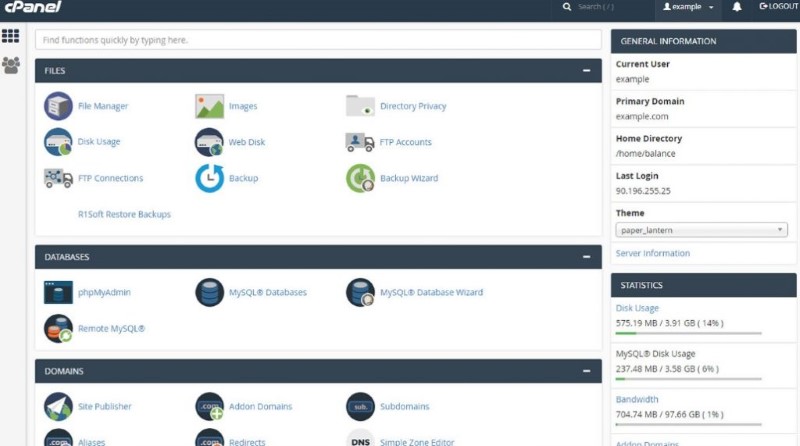Warning: this is an article for people with strong doubts that we want to solve! Let’s start with the basics. If you’re not sure how to answer the question “what’s the difference between Cloud hosting and cPanel?”, it’s time to take some time to delve into the technicalities of Cloud hosting and cPanel, as well as the basics of how web hosting works. Ready? Let’s get started.
What is hosting and what is cPanel
Let’s start with the basics: a website is made up of files. These files can be code, graphics, animation, video and so on. To be able to have and run a website, you need to have a place to store these files so that people can access them over the Internet. So, just like when you rent a house to live in, you usually rent a web hosting space for your website files.

There are hundreds of different technologies and configurations for hosting, each one different and with different advantages and specifications depending on the demands that the site has. However, we can say that the two most popular forms of web hosting in recent years are Cloud hosting and cPanel hosting. But what is the difference between these products and which of them best suits your business?
Cloud hosting
In addition to becoming an extremely popular marketing term, there is a specific meaning behind the word “Cloud” and it is relevant to understanding the potential of this hosting environment.

Cloud means that all web hosting services (DNS, mail, web, ftp, database) are run on multiple servers instead of a single traditional server. The advantage? In the event of a failure on one server it does not cause downtime for the site because it will be managed by the other servers.
cPanel Hosting
The cPanel web hosting service is well known in the hosting industry and has become, over time, an essential tool for businesses. It is currently the most popular hosting control panel in the world and the one that most users are most familiar with.
cPanel is usually installed on a standalone server, and although it is an unquestionably good tool, it means that all services are subject to failure if that server breaks down.
In systemicPanel, however, you have complete configuration autonomy and very few limitations. But let’s go in order starting with what we see on the side: the interface.
cPanel and Cloud Hosting in comparison
Although the user interface may not seem important, it is the first difference that most people notice and the first step in comparing the control panels of the two systems.
A cloud hosting control panel may have a basic, clean or complex user interface that allows users to manage their website and other standard features. Depending on the provider, this may or may not provide more elements than we find in cPanel but this is something that is only recently becoming apparent. The reason is due to many new providers entering the market by creating their own proprietary control panels.
The cPanel control panel has undergone a lot of development over the years: updated features have been added to allow users to make changes through a simple interface rather than going through configuration tools. For users who rely on a user interface, cPanel will be the most beneficial choice both in terms of simplicity and the support literature created about it.
The second element to consider is the server infrastructure
It’s important to know the difference between the way Cloud and cPanel work, so you can choose the right infrastructure for your company or project. Cloud hosting services (PHP, web servers, databases, email, DNS) all run on individual, separate servers. This means that there is a group of computers dedicated to supporting server applications that are used or can be readily used, without downtime. If you host your website on a non-clustered service and if the server connected to that service crashes, your website will be offline until the server is repaired and restarted.
cPanel on the other hand, is commonly hosted on a single server but always on extremely robust machines that are subject to constant maintenance. All services (web, email, database, DNS) all depend on this server to be running every minute of every day, representing a single point of failure.
The conclusion is simple: for simplicity and use, individual users tend to use cPanel while companies that have important web services to run constantly are increasingly moving towards hosting in the Cloud.
